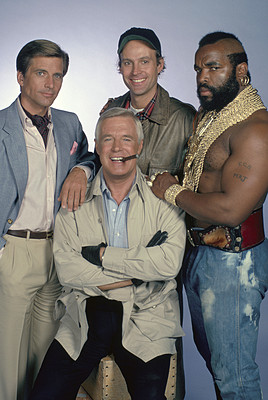Wavepacket Blog displaying only one specific post |
| 2009 | |
| May | |
| Mon May 25 23:33:34 2009 TV Shows are Dead |
|
| >> links >> | |
| Mon May 25 23:33:34 2009 TV Shows are Dead Say goodbye to the TV series... |
|
I'm not the best person to make predictions about TV shows, since I don't
actually watch any. But even someone who only watches other people watch TV
shows can see a few trends:
This is an interesting paper, covering how TV has evolved over the past 30 years. Some of the stats:
Then, this paper, which as far as I can tell covers leisure time in the Netherlands, notes that TV viewing per week grew a lot from 1980 - 1990, but was mostly flat after 1990 (although still growing!). According to that, people spend from 11.5 - 17 hours per week watching TV. Wow. However, time spent on the PC or Internet grew from basically zero in 1980 to over two hours now. Also, it grew the most among the 35-54 year olds, so the people watching the least TV (11.5 hours per week) were also the demographic spending the most time online (2.1 hours per week). And finally, this presentation (why is it North European countries measure their leisure time so well?) has some great data. Namely, their "Time spent on media, population 12+" graph, which shows:
So the summary: people are spending more and more time online, and less with other media--except maybe books. And it's a double-whammy for TV networks, since there are more of them competing for less of peoples' time. What does this mean for TV shows? At the moment, TV shows are hitting some rough times. All that sells on the networks is reality TV such as American Idol or Survivor. Other good shows such as Firefly get shut down due to poor ratings (I'm not a Firefly fan but I know many people who were disappointed when the series was cancelled--and I think it was better programming than most shows out there! But I didn't help Joss Whedon any, since as I said, I'm not really a TV watcher). The TV execs are wondering what sort of programming will save them. Probably nothing will save them! TV series will go away, and in 5-10 years we won't watch them. Why? Everything will be online. There is absolutely no reason to watch anything on TV except for live telecasts such as sports. Watching online gives you as good or better resolution. Most importantly, you can pick when you want to watch the show, and you can pause and play whenever you want. Your viewing schedule isn't tied to the network's broadcast schedule. I don't think syndicated shows (that is, shows consisting of multiple episodes) will go away. But the medium will change, and TV will be left behind. Here are my predictions:
I have no idea what the new revenue model will be. Everything driven by product placement? Companies will fund high-quality shows in exchange for regular advertising? Most likely, the revenue model will consist of websites that pull content from the producers of the shows, and add targeted advertisements to viewers that want to download. So TV shows will start to fade into history. People will soon talk about the hot new Internet show they're watching instead. You heard it here first! (Especially if you're from Denmark, since I know you read a lot of blogs in your leisure time). Comments |
Related: economics books predictions Unrelated: energy environment geopolitics lists mathematics science |
| Links: |  |
Blog Directory | Blog Blog | Technorati Profile | Strange Attractor |

